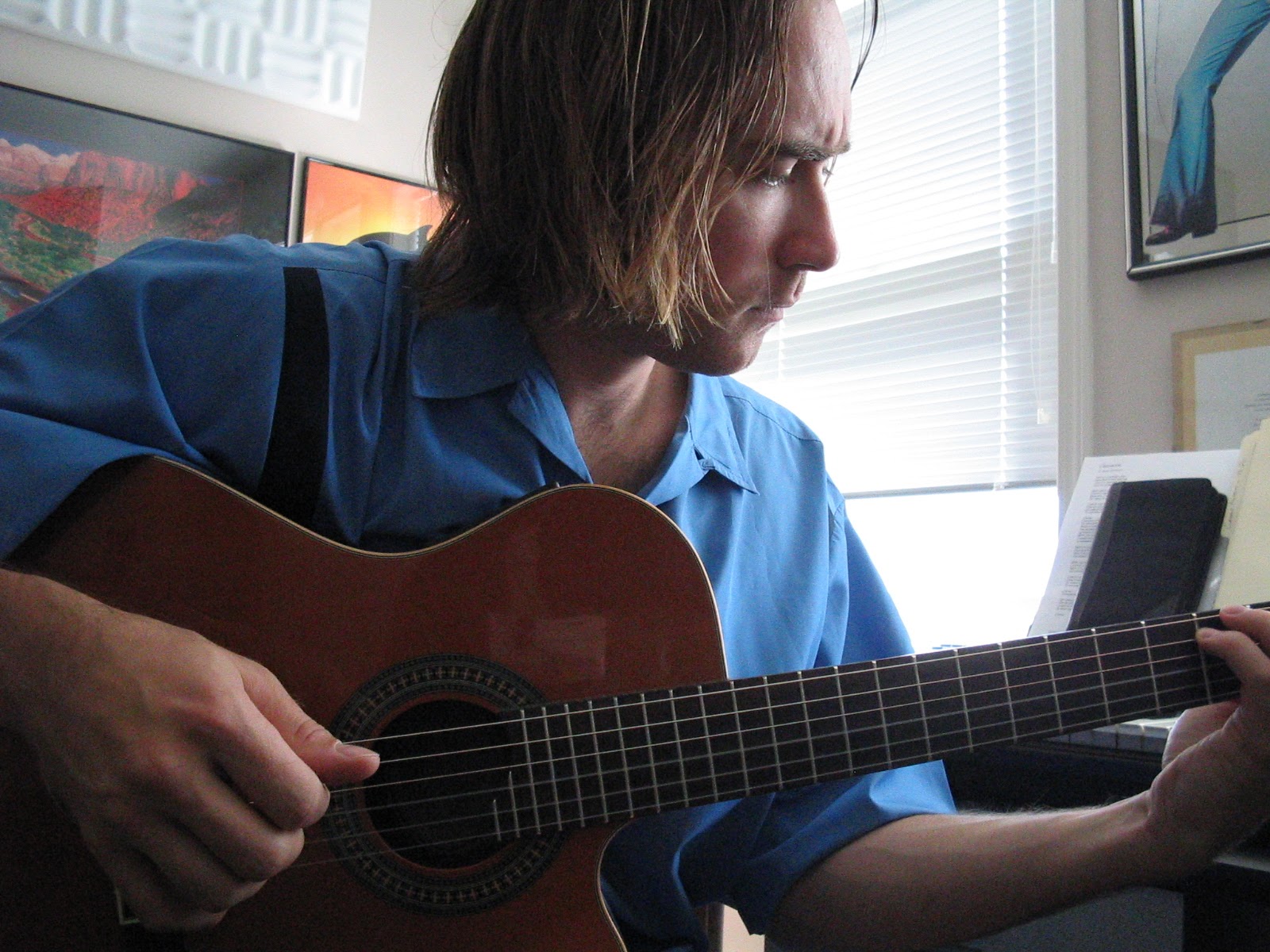Audio Version
When I was young, maybe about 12 years old, I had a dream of performing my music in front of a sea of people. It was just me under a spotlight, holding a guitar, with a microphone on a stand in front of me. I’m not sure what song I was about to sing, but it felt good to be there.
I began writing and composing my own music when I was about 16. I had dabbled and experimented with cheaper keyboards, but when I finally got a machine that could save and store fleshed-out ideas rather than just bits and pieces of songs, I was off to the races. There was no shortage of ideas, and each new sound or canned rhythm provided new inspiration. In a few years, I’d write the first drafts of hundreds of songs, many of which would include lyrics. I still have a container full of 3.5-inch floppy disks from the keyboard workstation, which was how I saved my projects. This was several years before switching to a digital audio workstation (DAW) and teaching myself how to compose and produce music using MIDI and computers.

“I think you should choose an easier one.”
I can’t remember what the event was, but I had to create a cover performance of a popular song for a recital or competition. I wanted to do my own version of Michael Jackson’s “Black Or White.” It was a challenge I felt up to, and I adored the song — and pretty much everything, MJ. There was no singing involved, only the music. My father disagreed, suggesting that I take an easier path. I recall that moment, which deflated me quite a bit. I really could have used a “Hell yeah! Go for it!” at the time. I’d never been particularly confident in seeking or requiring external feedback, so this was unreasonably defeating. I ended up doing a Madonna song, I think. It was well received, but it cost me in other ways.
Other ideas (or limiting beliefs) accumulated over time. “You need a base — a job to support you — and then you can pursue your music.” “You have to have a diploma, something to fall back on,” and other similar ideas gradually tempered and dulled my motivation and aspirations. Unfortunately, I was a stubborn kid who had already developed a strong resentment for my parents by my late teens, so all advice was essentially the opposite of what I would choose to do.
I hadn’t made any decisions about post-secondary education because nothing in the job market piqued my interest. High school was boring and torturous, so why would I want to attend another institution? I strongly considered studying information technology and computer engineering after spending countless hours coding and learning the fundamentals of programming. It was a creative outlet that provided enjoyable experiences… However, I did not, or would not, commit. I’ve had some decent jobs that could have helped me, supported me, provided promotions, stability, and so on, but most of them lasted only a year or two, if that. Financially, I’d return to zero and jump ship. I only cared about making music.
These were not my finest hours. And I paid for it many times and in a variety of ways. My parents weren’t entirely wrong, and they were only looking out for my best interests based on their own beliefs and experiences. I understand that now, but I could have handled it better instead of adopting the “I’ll show them” attitude and then failing and stumbling forward for the next few decades, essentially going nowhere in particular.

The Happy/Sad Introvert
I thrived in blissful abandon in my own space, free from anyone’s interruption. I could create the things I loved to create with prolificity. I could compose beautiful songs, imagine scenes for music videos, and sing for hours on end. I envisioned stage designs and the appearance and sound of an orchestra, band, or choir for specific (epic) song performances.
Regrettably, it was all in my head. With such a vivid, satisfying imagination, reality would have a nearly impossible standard to live up to (and this “gift” would prove tragic in most of my romantic experiences, too; don’t idolize or idealize people). I could never go to the next step — to dare greatly beyond my imagination. Other than the typical justifications — being shy, introverted, lacking confidence, not having any fans or an audience yet, lacking funds, having no clear direction or plan of action, being afraid of failing and succeeding — I didn’t have a particularly good explanation for it. No big deal, right?
My mother tried several times over the years to persuade me to contact radio stations or find a way to promote myself, but I declined all of her offers and suggestions. Partly because I “knew” there was a certain way the music business worked and there were certain expected procedures; you couldn’t just go knocking on these people’s doors without some sort of representation or credibility (which was complete bullshit). Partly because I was afraid of what would happen if they didn’t like my work (when you love what you do too much, you become overprotective and stupid). I now realize that it was typical adolescent behavior and pure self-sabotage that repeatedly stalled my progress.
All of this is just to say, don’t do as I did. The pain isn’t worth it. But in retrospect, doesn’t everyone, successful or not, say the same damn thing?
Regardless, there’s no reason to live with such regrets or to put off pursuing your true desires. We have these impulses, yearnings, and callings for a reason. The simple truth is that we are drawn to these dreams and aspirations because we are imbued, to some extent, with the ability and capacity to make them a reality (though rarely all by ourselves; another fantastic mistake of mine). You’ve probably already proven it to yourself, albeit in small ways that you don’t necessarily count or consider noteworthy. However, regardless of scale, the process remains the same. The key is not to limit your potential based on what you believe is possible, because once you get deep into it and follow the flow, it will almost certainly be far greater than you imagined. Or it could be something completely different — and even more expansive and fulfilling — but the motivation and energetic momentum you needed came from that initial conceptualization, which was needed to propel you to where you’re meant to be.

Infinite Possibility
Unquestionably, I am where I need to be, regardless of my self-reproach and judgment of my levels of success, or lack thereof. Ultimately, very little matters, and life will go on whether we dare to explore what scares us or stay safe. Fear, of course, stems entirely from mistakenly living outside of the present moment, based on predictions, expectations, and illusions based on a limited scope of our current understanding and experiences. It doesn’t matter if we help and support others in achieving their dreams (which I did by default, albeit somewhat reluctantly), or if we go ahead and pursue our own.
The only thing we can change about the past is our perception of it. We can either fill it with negative, soul-sucking, self-defeating values and beliefs, or we can chalk it up to necessary and essential experience and start over; we can always choose a different path, form new habits, commit to a plan, and design a life more aligned with our deepest preferences and desires.
Solvitur ambulando
Written by Trance Blackman. Originally published on tranceblackman.com on 04 February 2020. Revised 25 February 2024.
